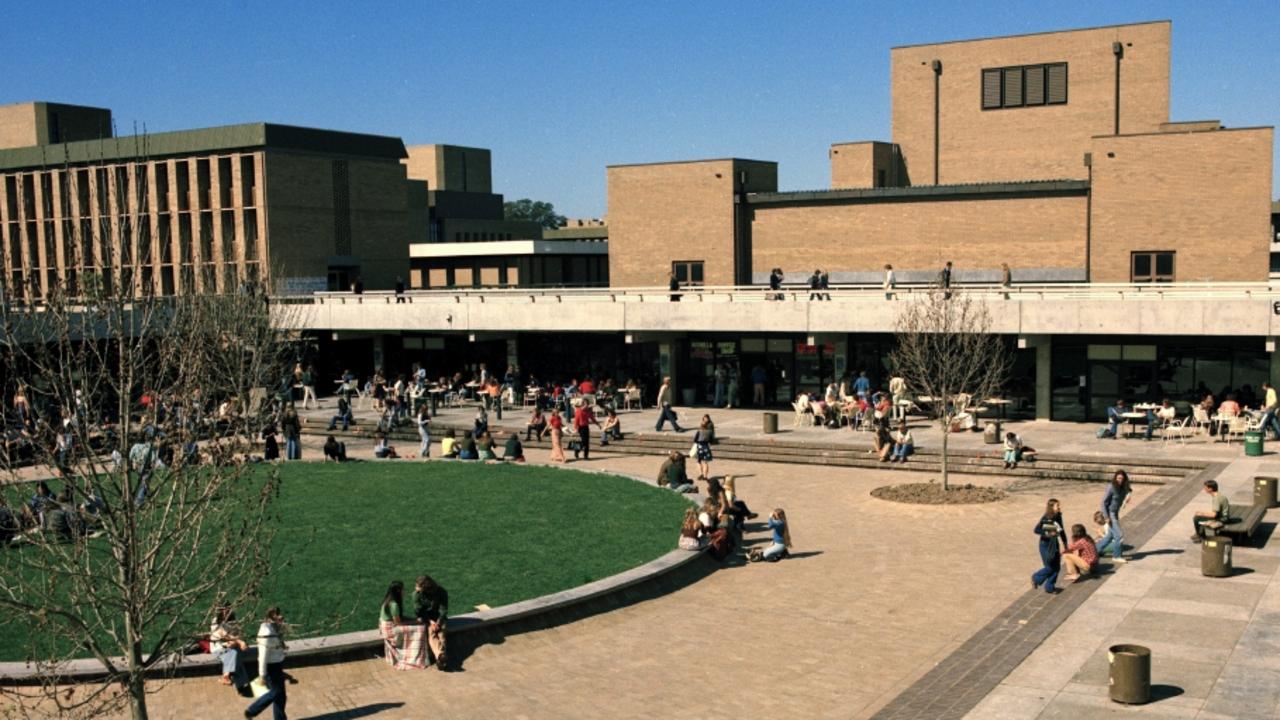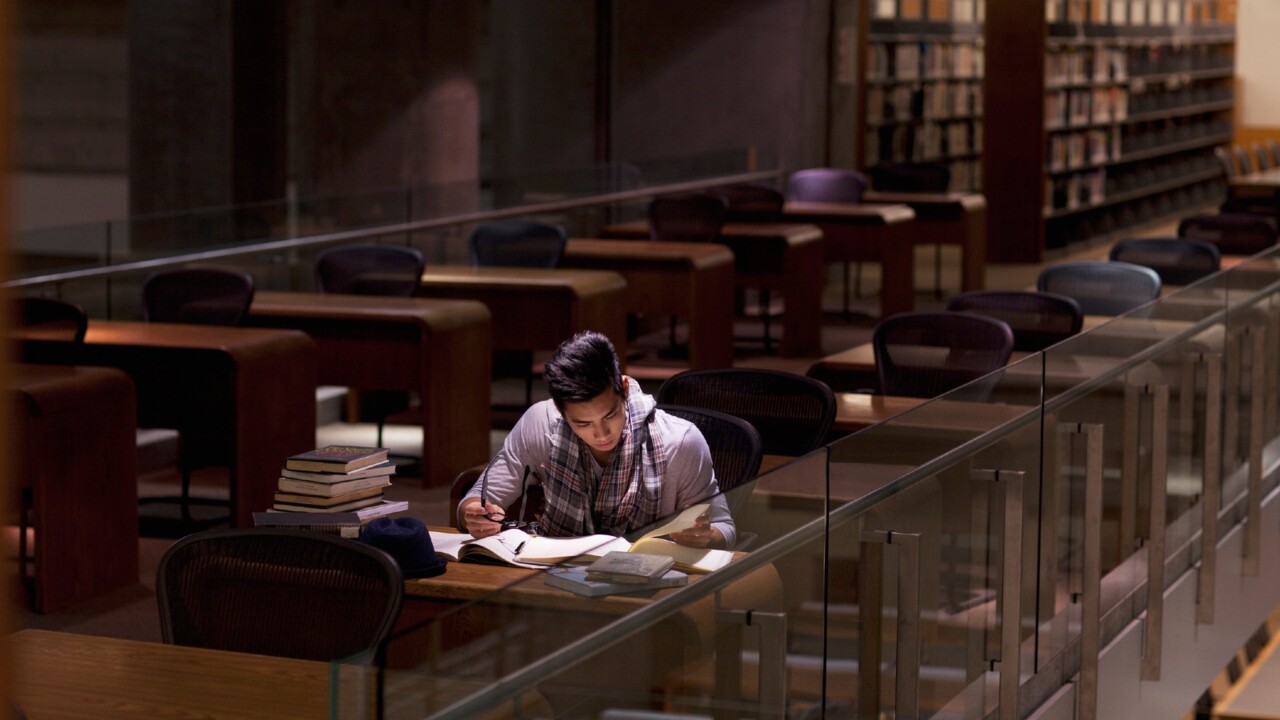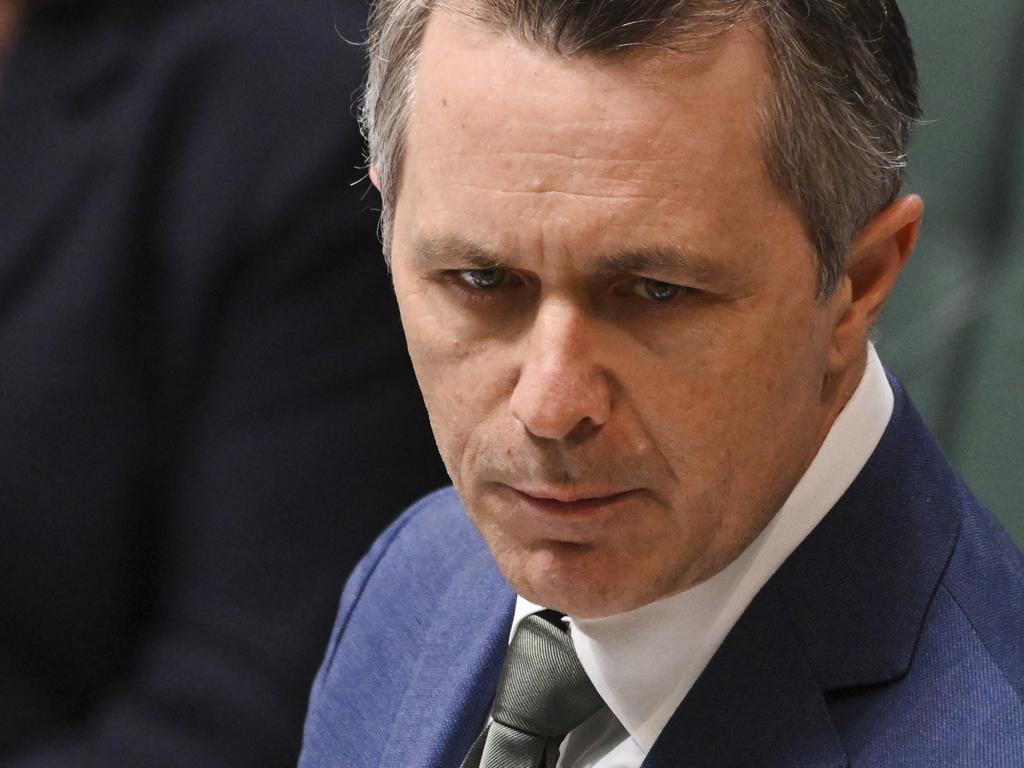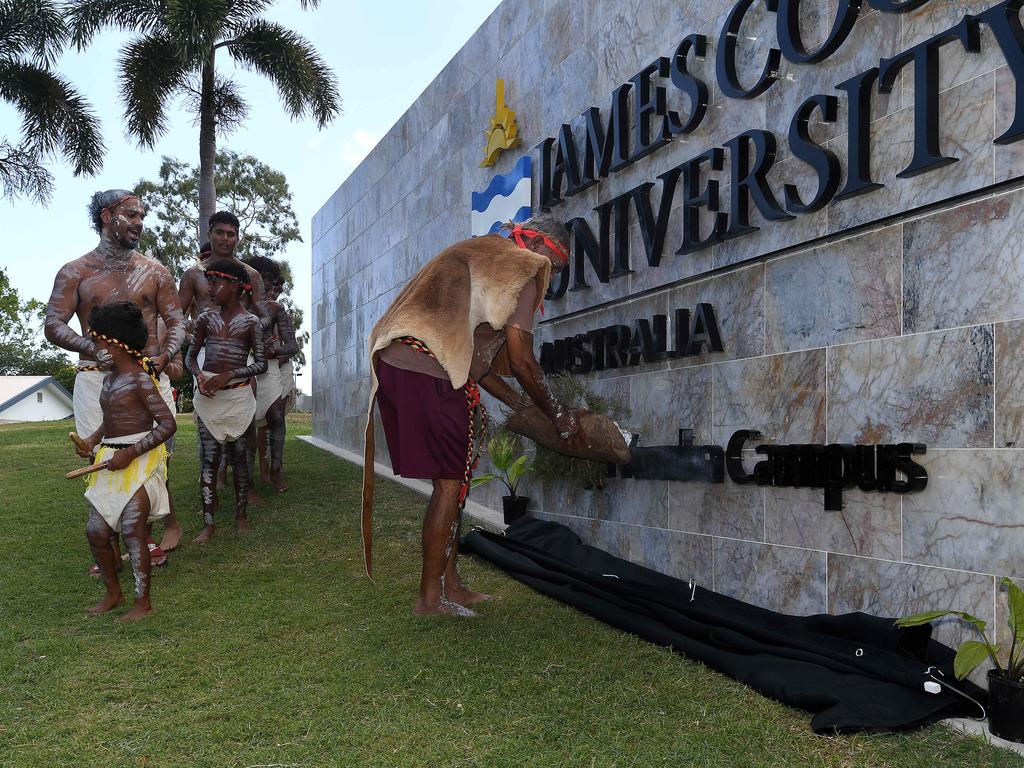The death of the humanities in our universities

My own university, La Trobe, was started in the 1960s as a projection of the humanist ideal, concentrating on humanities and science. For three decades it was very successful. Thirty years ago its history department was broad and of high quality, with about 50 full-time staff. It contained, for example, a group of a half-dozen specialising in English 17th-century history. It could boast eminent historians such as Inga Clendinnen and John Hirst. Today, it has shrivelled to a rump of 11 teaching staff.
During the same period, sociology has shrunk from 40 lecturers to seven. English and philosophy have dwindled commensurately, with philosophy little more than a token gesture, with three members of staff. Art history and music departments were closed long ago.
To visit the main La Trobe campus today, in the Melbourne suburb of Bundoora, is to enter a ghost town, with corridor after corridor of empty rooms that once housed staff. The once-upon-a-time hub of the university, the Agora, which used to be packed with students and staff, a marketplace of socialising and discussion, is a suburban wasteland, with an occasional lonely figure to be seen crossing it.
On the one hand, the humanities and social sciences have withered; on the other, online learning has killed almost all student life. The library has become a leisure and workspace centre with a few token bookshelves on the top floor. A once large and great bookshop has been replaced by an IGA.
To try to understand what has happened, let me trace the history.
The 20th-century university was humanist in its assumptions, drawing its lifeblood from three related ideals. One was Victorian, based on a character ideal, assuming that the good society depends on a social hierarchy led by an educated elite, one with a strong sense of civic duty.
The second ideal was that of civilisation, imagined as the pinnacle of human achievement. It depends on the most intellectually and imaginatively gifted, in trained application, producing great works. Civilisation has created the gothic cathedral, the jumbo jet, the internet, Hamlet, the Sistine ceiling, graceful town planning, hygiene and codified law. The works of civilisation show humans at their highest, transcending everyday life; making of themselves something immortal and godlike; and creating powerful tools for the conquest of necessity, and objects of supreme and edifying beauty.
The third ideal was a utilitarian one, that culture and knowledge are useful. In Matthew Arnold’s formulation, deriving from Socrates, knowledge will make a person better and happier. Ignorance is the source of misery and evil. Humans who have knowledge will find it more difficult – in the extreme version, impossible – to do ill. They will be more rational about their lives and therefore make them more pleasurable and fulfilling. These qualities applied to society will result in it, too, being reformed and improved.
The humanist ideals were combined in John Henry Newman’s 1852 lectures on The Idea of a University. Newman focused on what he called “the culture of the intellect”, by which he meant the force, the steadiness, the comprehensiveness and the versatility of the intellect, the command over our own powers, the instinctive just estimate of things as they pass before us, which sometimes is a natural gift but commonly is not gained without effort and the exercise of years. This is real cultivation of mind.
Apart from the training of the intellect, the main function of the Newman university was to transmit universal knowledge. The goal was a person with a disciplined mind, who is knowledgeable and who has judgment. This is not directly utilitarian; cultivation of mind is like health, good in itself.
This humanist university decomposed, in the first place, slowly from within. Teachers lost faith in civilisation, particularly Western civilisation. The belief faded that acquaintance with the great classical works – Homer, Thucydides, Plato, Raphael, Shakespeare, Isaac Newton and Henry James – could illuminate an individual’s life, bringing self-understanding and inspiration. This disenchantment came in waves through the 20th century, with notable crescendos in the ’20s and ’60s.
Teachers who had not become listless in their vocations tended to become rancorous, teaching against the authority of the inherited culture, in what was celebrated as a “critical” or “radical” manner.

This was not criticism in the sense of open-minded scrutiny of a text to gain some truth, but the drive to deny all universals. The syllabus steadily became politicised, with a brand of low-grade Marxism spreading from sociology across political science, history, media and English, and spawning new pseudo-disciplines such as cultural and gender studies. The lifeblood of rancour is power thwarted, so the embittered teacher is readily drawn to political action, with power the last value, and the championing of the less advantaged the last cause.
Rancour also commonly surfaced in a condescending disparagement of ordinary people and popular culture, for cheap taste, crass materialism, xenophobia, love of nation and syrupy values. Humanities lecturers and professors bear significant responsibility for declining enrolments. In failing to promote the humanist ideal, they have come to mimic those thousands of churches, virtually empty because priests and ministers have lost faith in their vocational demand to retell their founding story, making it relevant, inspiring to new times.
In addition, humanities departments, in politicising their courses, have made them boring. Who wants to study Jane Austen’s oblique views on slavery in place of her insight into the vicissitudes of human character and relationship? Who wants to study the passing critique of colonialism in Joseph Conrad’s Heart of Darkness when that work penetrates, without peer, into the depths of modern unbelief and its psycho-spiritual consequences?
Loss of confidence has spread beyond the academy into employer attitudes. Long gone is the preference of the British Civil Service for recruiting graduates from Cambridge and Oxford with classics majors, in the belief that a broad general education and cultivation was the best preparation for government and public administration. Many Australian employers, not so long ago, also sought graduates with a broad education and a trained capacity for systematic argument and clear writing. Now they prefer vocationally relevant training.
Then there is the new spectre of managerialism. As professors lost confidence in what they were professing, they were replaced by managers as the key figures in the institution. The teachers came to serve the administrators, not the other way around. This happened with little resistance, a sign of the demoralisation of acquiescent academics. The community of scholars was turning into a sluggish bureaucracy, with the old framing logic of inquiry and teaching being replaced by one of reports, committees and vapid mission statements.

Universities have been transformed across the past century in their employment profile from 80 per cent academic/20 per cent non-academic to about 45 per cent academic/55 per cent non-academic. It would seem the core business of the institutions, in terms of what upper management actually values, has switched from teaching and research to organisation. This has been aggravated in the Australian case by the university system being centralised in Canberra.
With funding and control in the hands of the Australian Public Service, there have been at least two malign consequences. Universities, ever in search of funding, have slowly copied each other in terms of what they offer – law and medicine faculties, for example, have spread from the few to the many. The original La Trobe humanist model became dysfunctional. Quite separately, the Canberra bureaucracy, true to its nature, requires from its dependent universities constant reporting for its own senseless sake. So, universities are forced to hire phalanxes of administrative staff to write reports that, I am sure, will hardly ever be read in Canberra, never mind acted on.
In the managerialist ascendancy, much sense of excellence of research and teaching has been lost. In the recent decades of pruning departments, I haven’t seen one instance of discrimination along the lines that there are some staff that universities can’t afford to be let go, on the grounds of their research and teaching excellence.
Administrators seemed to have no conception of mediocrity, including the depressing effect of uninspired and uninterested lecturers on students. Imagine a professional football club recruiting players with no consideration of their ability. It is obvious where that club would soon find itself on the ladder. Unfortunately, there is no equivalent reality principle checking the performance of universities, apart from clumsy and haphazard international ranking systems and students voting with their feet.

Further, the new curse of the screen has not helped the humanities. Addiction to the iPhone, iPad and the laptop computer, including the fast googling of snippets of news, opinion and information, tells against the calm leisure required to study difficult philosophical arguments and dense historical or literary texts. I sympathise with any lecturer today trying to compel students to read a Dostoevsky or James novel in two weeks, or study Hannah Arendt, in preparation for a seminar. It can be done, with enough pedagogical authority, despite the institution having no sympathy for the enterprise, and even trying to prohibit it – as was the case in my own last teaching years.
There is no law decreeing humanities faculties should survive. There are examples from the not-so-distant past of their irrelevancy to the wider culture. Oxford and Cambridge in the 19th century made negligible contribution to learning and discovery. Charles Darwin was typical in being a private scholar. John Stuart Mill was educated by his father. Some of the famous romantic poets might, like Wordsworth and Byron, have passed an inconsequential year or two at Cambridge, but their paths led way beyond the academy. Arguably the most impressive cultural centre in 18th-century England was Samuel Johnson’s informal literary club that met weekly in a London pub. Its membership included Edmund Burke, brilliant parliamentarian and founder of modern conservative thought; the other leading politician of the day, Charles Fox; painter Joshua Reynolds, playwrights Richard Sheridan and Oliver Goldsmith; the father of modern economics, Adam Smith; historian of the decline of Rome Edward Gibbon; actor David Garrick; and, in a later Australian link, Joseph Banks (Johnson once mimicked a kangaroo).
New bodies will spring up to replace faltering university humanities faculties. The Ramsay Centre for Western Civilisation is experimenting within this space. It has funded new staff in three universities to teach the classic foundation works of the West. It is also running public lectures and podcasts in Sydney, and sponsoring students with scholarships to study here and overseas. A centre separate from any universities may become the way of its future. I recently met some of the Ramsay students and was impressed by their intelligence, curiosity, confidence and ambition.
Also, I recently gave a lecture at Campion College in western Sydney. Campion is a small liberal arts college teaching four areas: philosophy, literature, history and theology, which should be broadened in time with other subjects. Established by a core of concerned Catholic citizens who raised the funding, managed accreditation and hired staff, it boasts new buildings and a thriving collegial community. Its students, dining in academic robes, exuded a refreshing self-confidence, seriousness and enthusiasm that seem but a distant memory in the traditional universities.

It is also possible that odd centres will thrive within the current universities. The Institute for Applied Economic and Social Research at the University of Melbourne is a case in point. It produces in its Household, Income and Labour Dynamics in Australia surveys some of the highest quality social research to be found anywhere in the world.
If the humanities faculties do wither away, the universal human need for vehicles to travel the road to self and social understanding will remain. Satisfaction will be sought in new ways. For most today, the Bible is a closed book, so they are more dependant than ever on the canon of our culture’s deepest meditations on meaning and truth. In Shakespeare, to take the highest example, virtually the entirety of human experience is conjured up and reflected on – of life’s ambitions and sufferings, its joys and absurdities, of love, hate and laughter, of good and evil, of history and politics, and, at the finale, the dark confrontation with inevitable death. But Shakespeare needs teaching.
John Carroll recently published The Saviour Syndrome: Searching for Hope and Meaning in an Age of Unbelief.







A recent article in The New Yorker was titled The End of the English Major. The implosion of American humanities enrolments has been featured elsewhere, with many campuses recording a halving of those graduating between 2012 and 2020. The University of Wisconsin is considering eliminating English, history and philosophy majors. The story is the same here. The Australian Catholic University recently reported a 30 per cent drop in arts enrolments at its Melbourne campus.